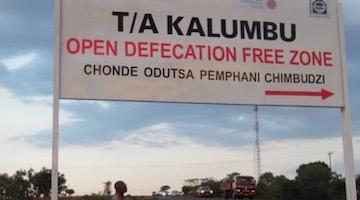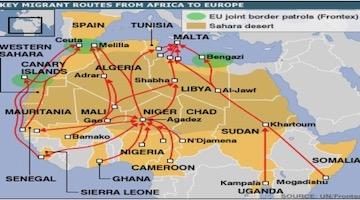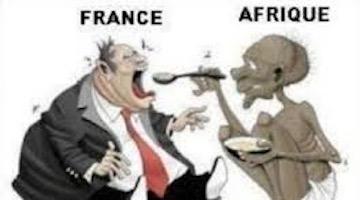Ann Garrison responds to a critic of neocolonial nature “conservation” in Africa, and discusses US-backed threats to national sovereignty and all forms of life in the Democratic Republic of Congo.
“The US and the rest of the West have appointed Kagame as the neocolonial manager of DRC’s vast resources, and he of course enriches himself and his circle in turn.”
This week I received a critical letter from a reader whose concerns are so significant that I devoted my column to them.
Yutaka Yokoyama writes:
“I was glad to see an article about conservation politics in Africa on your website (Ann Garrison's article about the DRC's Virunga National Park), though I read it with increasing concern. The article was effusively slanted in favor of blatant neocolonial conservation systems that have been provoking a growing uproar in recent years. This is in spite of one paragraph in the second half of the article, in which the author openly lists the neocolonial forces with whom she still aligns herself:
"Despite the astounding natural wealth of the park and surrounding region, the European Union and the Howard G. Buffett Foundation pay most of its bills, and whoever does that no doubt wields considerable power, whatever their motivations and however they understand the park’s problems. Howard Buffett, billionaire son of Warren, is a close ally of Rwandan President Paul Kagame. He and another ally, Bill Gates, are on a mission to privatize and industrialize African agriculture with USAID’s help."
It's remarkable that none of that prevented Ann Garrison from openly siding with these forces against the indigenous population and heaping praise on the project and its white park director, whose words of self-adulation in National Geographic she quotes at length.
“I think a more reasonable take on the general subject would acknowledge the current work of people like Dr. Mordecai Ogada (whose recent commentary I have transcribed in part below this email), and Merlyn Nomusa Nkomo, whose June 7, 2020 article in iLizwi, "The Achilles Heel of Conservation," ought to be read by everyone. And in my opinion, all of this should be considered very mainstream, in the sense that it embodies the main flow in human progress with far-reaching implications. I don't think it should be considered a marginal concern.”
I respond:
First, thank you for sharing “The Achilles Heel of Conservation” by Merlyn Nomusa Nkomo. I recommend it to anyone reading this, and recommend that Black Agenda Report publish it. I also recommend the video conversation with Dr. Mordecai Ogada that you reference. That’s something else I’d like to see BAR publish, since it is a multimedia site. I imagine I would like Dr. Ogada’s book, The Big Conservation Lie, written with John Mbaria, which I added to my reading list. I appreciated Dr. Ogada’s observation that “many conservation projects are inspired, quite frankly, by Tarzan, and they think of themselves as scientific.”
I don’t disagree with either of these writers and scholars, so I’m sorry it seemed to you that I was promoting “neocolonial conservation systems.”
I’m well aware of big Western “conservation” organizations who want to get rid of the people in the name of the wildlife. Once they’ve done that, some set up lodges for wealthy people who want to go on safari. Some even propose that having spent so much money, these tourists should be allowed to shoot “big game,” including endangered species that a native African would be arrested for “poaching.” However, my piece was not meant as a critique of the conservation industrial complex.
Second, I wrote “DRC’s Virunga: Park, Gorillas, and Rangers All Under Attack” in response to reports that unidentified militiamen had attacked a civilian convoy guarded by park rangers, killing 4 civilians and 13 rangers in DRC’s Virunga National Park. I attempted to describe the park as it is, not as I think it should be. That’s why I wrote, “The park authority, Institut Congolais pour la Conservation de la Nature (ICCN), is a partner of the Congolese government, the United Nations Educational, Scientific and Cultural Organization (UNESCO), the European Union, and international NGOs and foundations, so there are, no doubt, multiple political pressures and degrees of awareness involved.”
“I attempted to describe the park as it is, not as I think it should be.”
Perhaps I should have said “multiple neocolonial pressures and motivations in play.” I might also have added that Emmanuel de Merode, the Belgian prince and Virunga Park Director, has made his case for the park at the World Economic Forum in Davos, an imperial organization if there ever was one.
I wrote that “the gorillas help build an international conservation constituency of NGOs, foundations, government agencies, and nature lovers who are committed to the park’s survival. And that if the gorillas were gone, that constituency would be greatly weakened.” That is true but it does not mean that I applaud the park’s dependence.
I did describe the park rangers as “heroic” in their defense of the park, the wildlife, and the surrounding Congolese community. According to the park service, 39 of them have been killed since 2008, 178 since the beginning of the First and Second Congo Wars, which were in fact Rwandan and Ugandan invasions of DRC beginning in 1996. On June 24, five more were attacked and seriously injured, then evacuated to Goma for care. If there’s another way I should think about the rangers, please let me know. I’m open to being educated.
The park and other conservation efforts in Africa should be everything that you and the scholars you admire think it should. Those most motivated to actually conserve an environment are indeed those who have developed a culture for sustaining and reproducing life there, those who “depend on it for their next meal.” And it should belong to them most of all. I’m not sure whether the very idea of a UN “World Heritage Site” is in itself neocolonial, but I’ll listen if critics of the conservation industrial complex argue that.
“Thirty-nine rangers have been killed since 2008, 178 since the beginning of the First and Second Congo Wars.”
Third, you objected to what you interpreted as my “support” for Dr. Emmanuel de Merode, the Belgian prince and Virunga Park Director. De Merode is obviously a European of enormous privilege who has had the luxury to spend all the time he pleases in wild African environments, and to become a wildlife and conservation expert, at least in European terms. I quoted his descriptions of the park simply to give readers who may never have heard of it a sense of its geography, wildlife, and expanse. If I had come across a similar description written by someone else, I might have used that.
I also quoted de Merode’s praise of the park rangers, which I did not interpret as praise of himself. However, if you think I was comfortable with the idea of a Belgian prince being in charge of Virunga, and in command of Black Congolese rangers, you’re quite wrong. I considered expressing my discomfort with that reality in the piece you criticize, but that would have led in a different direction that deserved its own piece, so I didn’t go there.
Much of my piece was about the park service’s attempt to keep SOCO International from exercising the oil concession granted to it by the corrupt, neocolonial Congolese government. I do not think that de Merode was working with SOCO; he already has too much privilege to care to be bribed, and I can’t imagine that he would take four bullets for the park, as he did in 2014, if he weren’t serious about protecting it, however he may conceive or misconceive it.
“De Merode already has too much privilege to care to be bribed.”
Lastly, as someone who has spent years trying to understand how the resource hungers of international mega corporations have led to the tragic loss of life and constant instability in eastern Congo—including the park—I was interested in how the park press service characterized the attack on the rangers. They issued a statement claiming to have conclusive evidence that the attackers were from the Forces démocratiques de libération du Rwanda (FDLR). The FDLR is a militia made up of Rwandan refugees who have been in northeastern Congo since mid-1994, when millions of them fled into DRC and neighboring countries to escape from General Paul Kagame’s advancing army.
The US and the rest of the West have found it convenient to blame the FDLR for all the violence in eastern Congo for nearly 25 years because it has given Kagame an excuse to invade and occupy. They have long since appointed him as the neocolonial manager of DRC’s vast resources, and he of course enriches himself and his circle in turn.
I wrote to the Virunga National Park Service four times to ask how they had evidenced their conclusion that the FDLR had attacked the civilian convoy and killed the four civilians and 13 rangers in late April. They wrote back several times promising an answer, and in their last email, promised that one would be coming soon, but it never did. That alone should be enough to tell anyone that someone is controlling the Virunga narrative for more than conservation purposes.
“The West has appointed Kagame as the neocolonial manager of DRC’s vast resources.”
At the end of 2008, de Merode was negotiating with Rwandan General Laurent Nkunda, who had led his militia on a rampage through much of Congo’s North Kivu Province and seized territory that included 50% of the park and all the gorilla habitat. De Merode and the Congolese rangers had fled the fighting 15 months earlier, and Nkunda was in control. De Merode wanted to get back into the park with the rangers, so he went to negotiate with Nkunda. Does that have something to do with why the park press claimed to have conclusive evidence that FDLR killed the rangers, but failed to produce it? It’s hard to believe not because their claim reaffirms Kagame’s excuse for occupying DRC, and absolves him of responsibility for the attack.
The FDLR issued their own statement denying responsibility and alleging that the attackers were in fact under Kagame’s command. I’d still like to see the evidence, and I just sent the park service a renewed request for that and any evidence of responsibility for the latest attack on June 24.
I could go on about events before and after de Merode’s meeting with Nkunda and this year’s attacks on the rangers, but those particulars would be getting far away from your concern with the sweeping subject of conservation politics in Africa.
Thanks again for bringing two important conservation scholars and writers to my attention.
Ann Garrison is an independent journalist based in the San Francisco Bay Area. In 2014, she received the Victoire Ingabire Umuhoza Democracy and Peace Prize for her reporting on conflict in the African Great Lakes region. Please support her work on Patreon. She can be reached at ann-at-anngarrison.com.
COMMENTS?
Please join the conversation on Black Agenda Report's Facebook page at http://facebook.com/blackagendareport
Or, you can comment by emailing us at comments@blackagendareport.com














